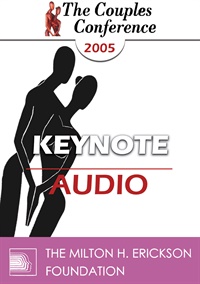
- Average Rating:
- Not yet rated
- Topic Areas:
- Keynotes | Couples Therapy | Neurobiology | Love | Addiction | Depression
- Categories:
- Couples Conference | Couples Conference 2005
- Faculty:
- Helen E. Fisher, PhD
- Duration:
- 1:02:24
- Format:
- Audio Only
- Original Program Date:
- Mar 05, 2005
- Short Description:
- Anthropologist Helen Fisher discusses the brain networks associated with romantic love to explain frustration, attraction, abandonment, rage, the despair response, love, addiction, stalking, love, suicide, and other phenomena associated with romantic rejection. She concludes that long term use of serotonin-enhancing antidepressants can jeopardize romantic love and attachment to a mate.
- Price:
- $15.00 - Base Price
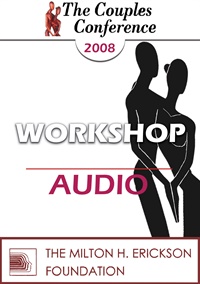
- Average Rating:
- Not yet rated
- Topic Areas:
- Workshops | Addiction | Attachment | Couples Therapy | Narcissism | Psychology | Personality Disorders | Avoidant
- Categories:
- Couples Conference | Couples Conference 2008
- Faculty:
- Stan Tatkin, PsyD, MFT
- Duration:
- 2:24:28
- Format:
- Audio Only
- Original Program Date:
- Apr 27, 2008
- Short Description:
- Comparisons have been made between severe avoidant attachment and disorders of the self such as antisocial personality, schizoid personality, and narcissistic personality. Each of these disorders, including avoidant attachment, can be grouped together as one-person psychological organizations in that they operate outside of a truly interactive dyadic system, and primarily rely upon themselves for stimulation and calming via auto-regulation. The chronic need for “alone time” can take many surprising forms throughout the lifespan, directly impacting romantic relationships.
- Price:
- $15.00 - Base Price
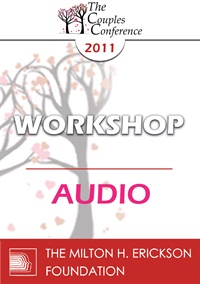
- Average Rating:
- Not yet rated
- Topic Areas:
- Workshops | Panic | Addiction | Pain and Healing | Sex and Sexuality | Couples Therapy
- Categories:
- Couples Conference | Couples Conference 2011
- Faculty:
- Marty Klein, PhD
- Duration:
- 1:56:37
- Format:
- Audio Only
- Original Program Date:
- Apr 01, 2011
- Short Description:
- This talk presents: 1) current information about porn, its users, and its impact on consumers and their relationships; 2) the common model of how porn use shapes sexual decision-making, and an alternative model that better matches people’s experiences; 3) an alternative to the “porn addiction” model for diagnosing and treating compulsive or impulsive behavior regarding porn.
- Price:
- $15.00 - Base Price
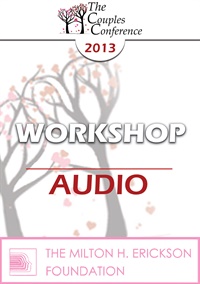
- Average Rating:
- Not yet rated
- Topic Areas:
- Attachment | Trauma | Addiction | Family Therapy | Workshops | Couples Therapy
- Categories:
- Couples Conference | Couples Conference 2013
- Faculty:
- Stephanie Brown, PhD
- Duration:
- 2:00:59
- Format:
- Audio Only
- Original Program Date:
- Apr 19, 2013
- Short Description:
- CC13 Workshop 02 - When Society Loses Control: Attachment, Trauma, and a Developmental Process of Couple and Family Addiction and Recovery - Stephanie Brown, PHD What is the process of “normal” couple and family recovery in the context of cultural loss of control? We will define addiction as a traumatic disorder of attachment for individuals and the family. We will review the Family Recovery Research Project, with an emphasis on the couple, outlining the stages of active addiction and recovery and the key themes and tasks of development that arise, along with the implications for couples therapy at every stage when the culture remains chronically stressed, chaotic and FAST.
- Price:
- $15.00 - Base Price
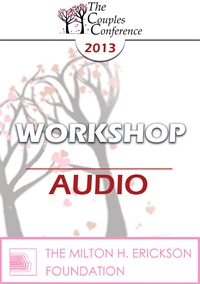
- Average Rating:
- Not yet rated
- Topic Areas:
- Addiction | Workshops | Couples Therapy | Family Therapy
- Categories:
- Couples Conference | Couples Conference 2013
- Faculty:
- Stephanie Brown, PhD
- Duration:
- 2:01:01
- Format:
- Audio Only
- Original Program Date:
- Apr 21, 2013
- Short Description:
- Society has lost control. Many in the culture are living in a downward spiral of a new addiction, chasing money, power, success and a wilder, faster pace of life. What is the impact on our understanding and treatment of the addicted couple and family who must live and work in a culture that is out of control? Dr. Stephanie Brown will present her new work on American culture’s addiction to FAST, and outline how all couples therapy must now include an understanding of addiction.
- Price:
- $15.00 - Base Price
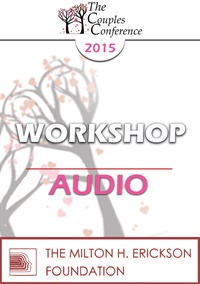
- Average Rating:
- Not yet rated
- Topic Areas:
- Couples Therapy | Workshops | Love | Relationships | Addiction | Sex and Sexuality | Trauma | Attunement | Communication
- Categories:
- Couples Conference | Couples Conference 2015
- Faculty:
- Alexandra Katehakis, MA, MFT
- Duration:
- 1:55:21
- Format:
- Audio Only
- Original Program Date:
- Apr 25, 2015
- Short Description:
- Sex addiction destroys trust in relationships, traumatizing the partner, the sex addict, and the family system. Relational trauma left untreated will have both parties and the entire system crumbling. Attunement, communication, and empathy (ACE) are the three pronged stool that supports the long, and sometimes arduous, journey to restoring trust. The goal is to recognize the signs of relational trauma in both parties, and compare the difference between relational trauma and co-dependence
- Price:
- $15.00 - Base Price
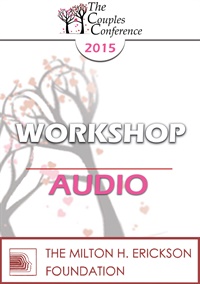
- Average Rating:
- Not yet rated
- Topic Areas:
- Addiction | Workshops | Love
- Categories:
- Couples Conference | Couples Conference 2015
- Faculty:
- Pat Love, EdD
- Duration:
- 1:46:03
- Format:
- Audio Only
- Original Program Date:
- Apr 26, 2015
- Short Description:
- This workshop will explore the fine line between love and addiction. Therapeutic strategies and questions will be explored, and you will learn three predictors of compulsion/ addiction.
- Price:
- $15.00 - Base Price
Tags: Addiction Love Couples Therapy
- Average Rating:
- Not yet rated
- Topic Areas:
- Neuroscience | Addiction | Keynotes | Love | Couples Therapy
- Categories:
- Couples Conference | Couples Conference 2016
- Faculty:
- Helen E. Fisher, PhD
- Course Levels:
- Master Degree or Higher in Health-Related Field
- Duration:
- 01:55:21
- Format:
- Audio and Video
- Original Program Date:
- May 13, 2016
- Short Description:
- Biological anthropologist Helen Fisher discusses three brain systems that evolved for mating and reproduction: the sex drive; feelings of intense romantic love; and feelings of deep attachment to a long term partner. She then focuses on her brain scanning research (using fMRI) on romantic rejection and the trajectory of love addiction following rejection. She concludes with discussion of the brain circuits associated with long-term partnership happiness and the future of relationships in the digital age—what she calls “slow love.”
- Price:
-
Sale is $29.00
price reduced from Base Price - $59.00
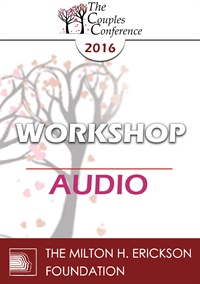
- Average Rating:
- Not yet rated
- Topic Areas:
- Addiction | Workshops | Couples Therapy | Developmental Therapy Model
- Categories:
- Couples Conference | Couples Conference 2016
- Faculty:
- Ellyn Bader, PhD | Sue Diamond, MA, RCC
- Duration:
- 01:55:02
- Format:
- Audio Only
- Original Program Date:
- May 14, 2016
- Short Description:
- Two particularly challenging issues that surface in couples therapy are addiction and self absorption. Through the lens of the Developmental Model of Couples Therapy, Sue and Ellyn will describe how to make strategic treatment decisions that propel couples toward sobriety and more collaborative functioning. They will review the troublesome traits of the self-absorbed partner and illuminate ways to increase other-differentiation and increase caring and compassion.
- Price:
- $15.00 - Base Price

- Average Rating:
- Not yet rated
- Topic Areas:
- Addiction | Deception | Keynotes | Psychobiological Approach to Couples Therapy (PACT) | Affairs
- Categories:
- Couples Conference | Couples Conference 2017
- Faculty:
- Stan Tatkin, PsyD, MFT
- Duration:
- 55:09
- Format:
- Audio Only
- Original Program Date:
- Apr 01, 2017
- Short Description:
- Of all the challenges to the couple therapist the most common is the matter of the affairs, addictions, and deception. In this one-hour presentation, attendees will learn various methods of detecting cheating, lying, and substance and non-substance abuse very early in the process of couple therapy. We will be looking at these behaviors from both psychobiological and neurobiological perspectives. However, detection is but one hurdle for the couple therapist. The other is intervention. PACT has a specific orientation for dealing with affairs, addictions, and deception. Attendees will get a thorough introduction to these methods as well as takeaways that can be utilized immediately in their own practice.
- Price:
- $15.00 - Base Price
Please wait ...


